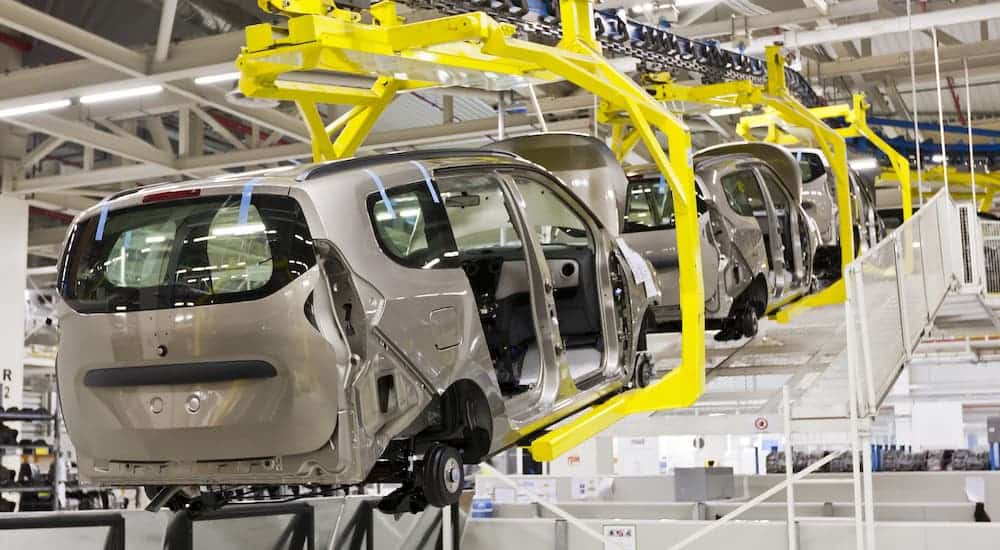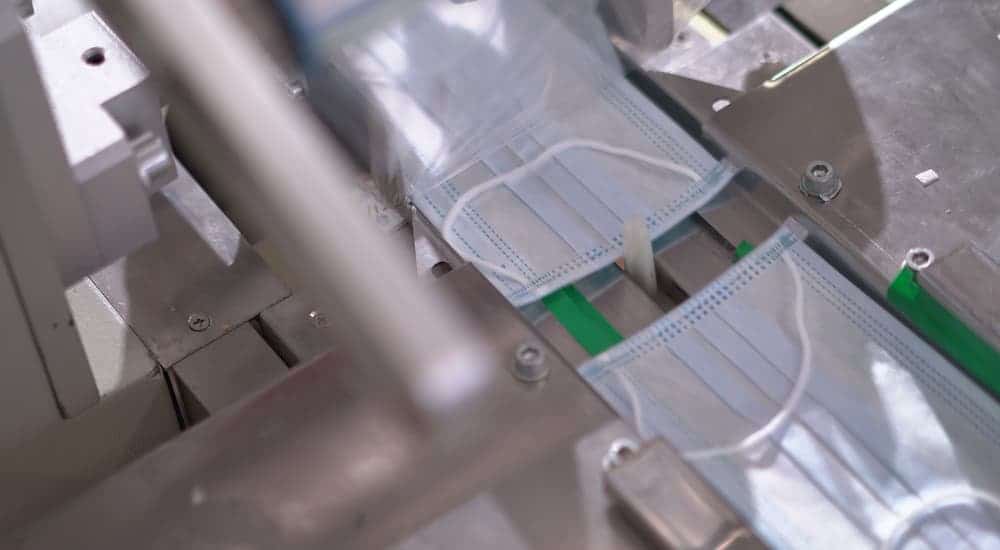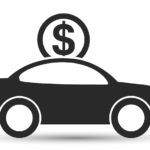One of my favorite things to do is to write reports on current auto news, and I wouldn’t be surprised if most of you enjoyed reading such articles. It is great finding out the latest scoop on the directions that major automakers are taking with respect to some of our favorite cars. But right now, there is something else dominating the headlines, and it is the COVID-19 pandemic. It was only in late January that word started leaking out about a deadly virus plaguing the city of Wuhan, China. Reports of people becoming sick and dying from this latest coronavirus began to become a reality for those of us here in the United States, as people began to become infected in many of our major cities. Before we knew it, the virus had spread throughout the world, devastating communities, closing businesses, and plunging the world into a medical and socio-economic crisis.
Like other sectors of the economy, the automotive industry has not been spared from this, with factories closing, workers being furloughed, and dealerships suspending operations out of concern for the health of their customers and employees. However, not all of the news has been bad, and in the following, I will address the current situation, show how the big automakers have stepped up in the fight against this disease, and address the long-term implications of what is only now transpiring around the country.
The Impact on the Economy
So far, the economic news has not been very positive. As cases began to increase, state and local governments began to issue shelter-in-place and stay-at-home orders in an effort to arrest the spread of COVID-19. All non-essential businesses in affected areas were ordered to close. Many people were laid off from their jobs. This, in turn, caused fear in the stock market of a recession, causing the Dow Jones to plunge precipitously throughout the month of March. Fears began to rise that the COVID-19 pandemic could lead to a worldwide depression.
These public health orders immediately affected US automakers. Ford shut down all of its European and North American production on March 19. General Motors and Fiat Chrysler Automobiles also suspended automotive production on the same date. Many foreign automakers followed suit on or around March 24, closing their American plants. This included Kia, Mazda, Aston Martin, Volvo, Toyota, Honda, and Subaru. It is unclear when these plants will reopen, but the leadership at Ford is cautiously optimistic that production may resume during the first week of May. A great deal will depend on the extent of the coronavirus outbreak at that time, particularly in the communities in which the factories are located.
As could probably be expected, with non-essential businesses closing and citizens being instructed to limit trips outside their homes, the automotive industry suffered a major decline in sales during the month of March. This has been exacerbated by the decision of many dealerships to close for the duration of the outbreak. While this decision makes perfect sense, since the health and well being of customers and employees should always be paramount, it has also had the unfortunate effect of harming sales. For example, General Motors saw sales decline 7% during the month of March, while Fiat Chrysler Automobiles reported a 10% decline. There are concerns in the industry that the second-quarter sales will be even worse, as many Americans may not be in a position to make big-ticket purchases like buying a new or pre-owned vehicle once the pandemic abates.
However, not all the news is gloomy. Unlike the Great Depression, the Federal Government immediately stepped in to provide relief for citizens and businesses impacted by the coronavirus shutdown. During the Great Depression, President Herbert Hoover responded to the stock market crash by cutting taxes and passing tariffs against foreign imports. Neither of these measures helped citizens who had lost their jobs and life savings, nor did they bolster industries that had been negatively affected by the crash.
Preventative Measures
If anything, these measures simply made things worse. Today, there are already measures in place to assist people who have lost their jobs due to coronavirus, including unemployment insurance. Moreover, the stimulus package recently passed by Congress and signed into law by President Trump will help to soften the economic blow from the COVID-19 pandemic. In addition to extending unemployment benefits to workers who have lost their jobs, the law provides payments to most citizens, loans to small businesses that cover their payroll and other expenses, relief to independent contractors and sole proprietorships, and assistance to large industries so that people will know that their jobs will still be there after this pandemic is over.
One of the major problems in an economic recession is that there is a cascading effect of negative events. First, workers begin losing their jobs, making them unable to pay their bills like car payments, mortgage loans if they are homeowners, and rent if they are tenants. The banks and landlords, in turn, are then unable to pay taxes, their employees, and their expenses, leading to more layoffs. At the same time, workers are unable to purchase all but the bare necessities, causing many businesses dealing in luxury goods to close, laying off more workers, and leaving creditors unpaid. Before you know it, the entire economy freezes up, and people begin to panic, looking to get their money out of the bank. This is exactly what happened during the Great Depression when a run on the banks led to many bank failures. Fortunately, that will not happen today, as the Federal Reserve works with the SBA to extend loans to small businesses. Also, the FDIC insures deposits, so people don’t have to panic about their money since the Federal Government is standing behind their deposits.
Automakers Stepping Up
One of the rare bright spots in this pandemic is how American industry has stepped up to meet the challenges posed by COVID-19. Textile manufacturers have begun making masks, gloves, and surgical gowns for our brave first responders. Liquor distilleries have converted to making hand sanitizer to make up for the shortages in the marketplace. Automakers have also gotten involved.
General Motors has begun manufacturing surgical masks at its plant in Warren, Michigan, under an action dubbed Project M. GM expects to be able to produce up to 1.5 million masks per month. GM is also making strides in its Project V, converting its components plant in Indiana to producing critical care ventilators in partnership with Ventec Life Systems. One of the worst aspects of COVID-19 is that it attacks the lungs, producing pneumonia-like conditions in its victims. One of the reasons for the high death rate in Italy was the lack of these ventilators. This production will be welcome news for all the hospitals tending to victims of coronavirus.
Ford and Fiat Chrysler have also stepped up as well. Fiat Chrysler has been feeding many American children who had relied on school breakfast and lunch programs to provide them with their only nutritious meals of the day. With the schools closed, Fiat Chrysler has stepped into the breach.
One of the most amazing efforts is Ford’s Project Apollo. This is a joint venture with GE Healthcare to produce over 50,000 ventilators at Ford’s facility in Michigan. In addition, Ford, GE Healthcare, and 3M are partnering to manufacture air-purifying respirators. This involves repurposing parts like airflow fans from Ford F-150 trucks and turning them into portable respirators to protect first responders. Finally, Ford is producing hundreds of thousands of clear protective face shields for our doctors and nurses at hospitals throughout America.
Other automakers are also helping out. Toyota and Nissan are utilizing 3-D printers to make face shields. Volkswagen is manufacturing surgical masks and gowns, which are already being distributed to hospitals in New York City, currently the largest epicenter of the outbreak. All of these examples show how automakers have been able to quickly retool production from building cars, trucks, and SUVs, to making life-saving equipment that is desperately needed during this pandemic.
Steps for the Future in the Automotive Industry
There are two issues facing the automotive industry today: what can be done to address flagging sales, and how long will it take to go back to manufacturing cars. With respect to the first, no one can give a definitive answer on the long-term effects of this pandemic. Just like there is no way to know for certain when the coronavirus pandemic will end, it is also impossible to know for certain whether the economic downturn will be temporary or if it will lead to a recession.
I don’t own a crystal ball myself, and my Magic Eight Ball only gives me answers to yes or no questions. What I do know for certain is that the automakers are not sitting still. Many of the big ones have already put into place payment plans and programs for new car buyers and ones who already have leased or taken a loan on an existing vehicle. These include Fiat Chrysler, Ford, GM, Honda, Hyundai, Kia, Nissan, Toyota, and Volkswagen. They are all to be commended for taking steps to help out their customers. The automakers fear that there will be a large default of leases and loans leading to repossessions, which could only exacerbate the existing decline in sales. In that regard, many have already enacted programs that allow owners who have lost their jobs as a result of coronavirus to defer payments for up to 120 days, depending on the manufacturer. This is a wise decision, as it will soften the economic blow felt by such people, while also helping to build long-term brand loyalty.
With respect to sales of new and used vehicles, many manufacturers are providing interest-free financing for a number of months for many buyers. This will allow them to acquire a new car without worrying too much about the long-term expense. In addition, many dealers have begun leveraging the Internet to make online sales while their brick-and-mortar facilities remain shuttered due to coronavirus. All of these measures should help the automakers and dealerships weather the storm of this pandemic. It will also help ease the worries of consumers already stressed out during this national crisis.
The second question may be easier to deal with, since the automakers have already dealt with this in the past. During World War II, GM, Ford, and Chrysler went from manufacturing passenger vehicles to producing tanks, jeeps, armored personnel carriers, military aircraft, and munitions. President Franklin D. Roosevelt referred to this as the Arsenal of Democracy. For those who don’t know history, the Big Three did not produce a single passenger car for civilian use from February 10, 1942, to September 9, 1945. Nevertheless, when the war ended in 1945, all three manufacturers were able to transition to the production of civilian automobiles without too much difficulty. Such should be the case with the current pandemic.
Moving Forward
Automakers should not have too much trouble restarting production, especially since they won’t have to move from producing Sherman tanks to building Corvette Stingrays. Moreover, the experience that automakers are getting in the production of personal protective equipment and ventilators may be able to help them diversify their businesses. For example, if GM continues to make masks and ventilators after this pandemic ends, then it will have another industry to support the overall company, particularly if it experiences a temporary decline in sales of cars, trucks, and SUVs. In a way, this could be the silver lining to the COVID-19 cloud that is currently hovering over our heads.






